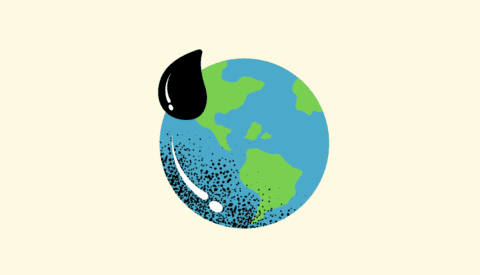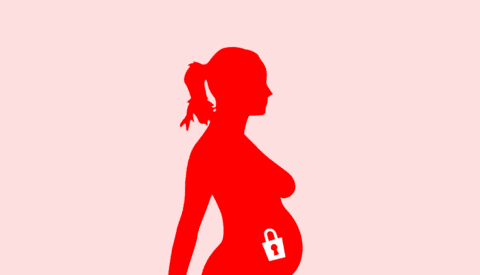When Finding Your «Better Self» Means Not Caring About Others
Many of the contemporary philosophies that promise to help us improve our lives and well-being also require cutting off relationships with other people — one of the most important parts of living in a society with others.
Article

Article
Abundant, insidious… Everyday, everywhere we go, everywhere we look, we receive, whether surreptitiously or explicitly, messages inviting us to acquire and feed our subjective autonomy through personal development exercises, emotional coaching, self-improvement techniques, some dubious self-help method or through different esoteric or «healing» paths, like astrology, tai chi, flower therapy, energy therapies, which promise individual fulfillment.
The rules are simple, but stupefying and, most worryingly, require severe emotional discipline: «Show your self-love», «Be your own universe», «You forge your absolute self», «Embrace your being and it will embrace you» and other similar nonsense and trivialities.
These sayings, which aspire to be heirs of the Enlightenment (whose Kantian motto – sapere aude! «Have courage to use your own reason» – intended to provide individuals with the intellectual tools to achieve independent free will) or of stoicism, hide a dangerous and alienating political (or apolitical) drift.
Through the trivialization and commercialization of people’s emotional insecurity, submerged in an intellectual narcotization caused by various contemporary malaises which have become endemic, these personal development maxims rob us of one of the most essential elements of a healthy society: the ability to feel affected by others.
Modern alienation
Under a syrupy layer of self-determination and self-sufficiency, this movement advocates for a morality based on the denial of mutual care — in other words, separating us from the responsibility for a common well-being, while condemning us to the ostracism of our personal sphere, and to the self-inflicted loneliness of emotional privatism («If I am well, everything will be well»).
We become isolated subjects who strive for their own well-being, through an unhealthy lack of communication.
According to the most stupefying personal development and the self-help-through-magical-thinking dogma («Where there’s a will, there’s a way»), there are many ways to free ourselves from the «toxicity» of certain relationships, whether personal, professional or even with ourselves, and to find our «vitamin people» (those who make our journey easier).
We become isolated subjects who strive for their own well-being, through an unhealthy lack of communication
The elimination of any ambiguity or problems in our lives is constantly promoted. Everything must «flow» comfortably through existence, allowing us to avoid anything unpleasant, including setbacks, obstacles and, in general, any potential burden.
Privileged irresponsibility
These pseudo-therapeutic scams – which gradually take on a greater role, enhance emotional alienation and belittle our intelligence – make us forget that we live and survive thanks to the political dimension of mutual care, of the relationships that we draw through our ability to be affected by others.
In every action we take, every word we utter, we are moral and political agents who create a type of world based on that doing.
These pseudo-therapeutic techniques do the opposite, by transposing vulnerability to the purely individual and private sphere, and subduing the subjects to the pressure of having to be the sole creator of their own happiness (or unhappiness) and making their civic commitment serve the pursuit of their individual well-being.
Subjects think they are autonomous but instead become completely dependent on techniques that strip them of their intelligence and even of their affections, which results in «privileged irresponsibility».
The ethics of care are replaced by a morality of self-improvement
This irresponsibility is about ignoring any forms of adversity that privileged people do not have to face. Immersing ourselves in our private universe and sticking to our personal well-being makes the world meaner, pushes us to avoid the relational and contextual dimension of our existence and reduces care and attention to an emotional onanism by virtue of which the subjects don’t allow any obstacles to the satisfaction of their desires, intentions and yearnings.
The messages most promoted, affected and widely disseminated reach more and more children and adolescents who, when they have to face some difficulty, do not know how to deal with any hint of frustration, since they have been indoctrinated with the idea that «Where there’s a will, there’s a way».
Leaving our comfort zone
The ethics of care are replaced by a morality of self-improvement, which is understood as a salvation from everything that is threatening, disturbing or challenging, while continually inviting us to «leave our comfort zone».
Because, we already know, the core business of these techniques is based on the fact that this comfort zone is wrong, and what better way to create the need for the tools of your typical shaman helping us «grow personally» than abandoning a comfort achieved through effort and long years of determination?
In short, the alienation to which the gurus of personal growth expose us dissociates us from our community responsibility, so that each person must be the exclusive guarantor, and therefore the exclusive culprit, of his or her happiness or misfortune, without having to worry about what happens in their immediate environment. That is without having to pay attention to the misfortunes of others, ignoring the dictate, as beautiful as it is accurate, of Simone Weil in her Notebooks (Routledge, 2003): «To contemplate the misfortune of others without looking away, not only with the eyes, but with the gaze of care, is beautiful. It’s paralyzing».
This content is part of a collaboration agreement of ‘WorldCrunch’, with the magazine ‘Ethic’. Read the original at this link.







